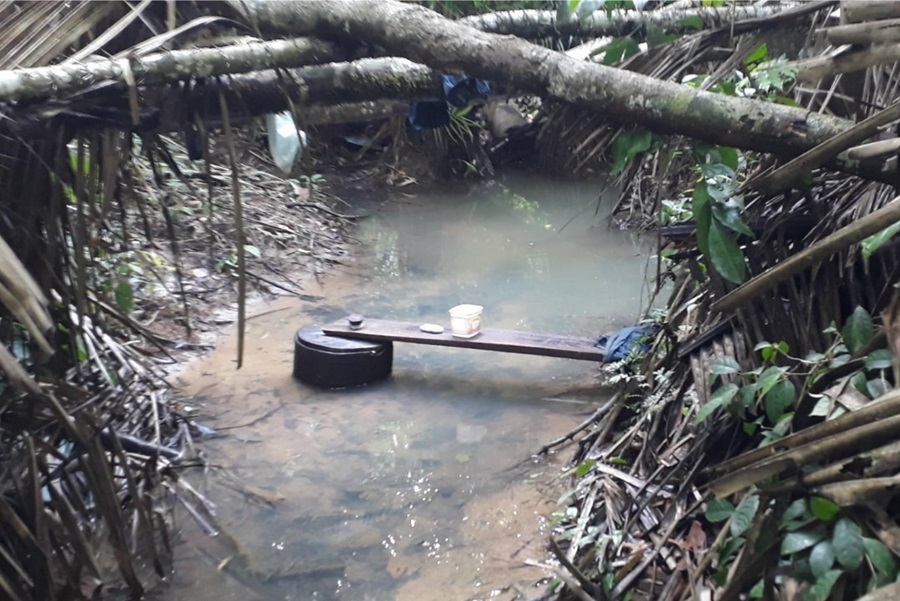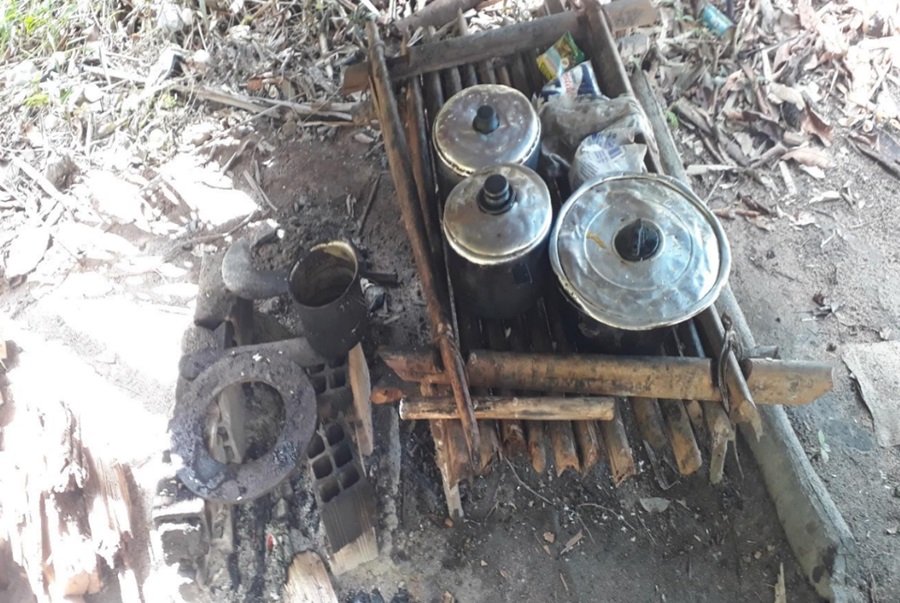Actualités
La banque milliardaire de Forbes a des liens avec une entreprise impliquée dans le travail forcé

Blog originally published here by Reporter Brasil
A fund managed by the Daycoval group sells credit rights of Agropecuária Rio Arataú to investors, a company caught using slave labor on a cattle farm in the Amazon.
The Daycoval Bank manages an investment fund that trades assets from Agropecuária Rio Arataú, a cattle farming company owned by the Queiroz Galvão group. The fund has an initial value of R$78 million. The company, involved in livestock activities, is listed on the Dirty List for slave labor after five workers were rescued at the Arataú Farm, located in Novo Repartimento (PA), in 2021. According to the Ministry of Labor and Employment, the group worked without proper registration, building fences, and lived in a makeshift tarp shelter in a forested area without access to potable water or sanitary facilities.
This is the second time Agropecuária Arataú has appeared on the Dirty List. In 2007, at the same property where the 2021 violation occurred, 11 workers were rescued from conditions analogous to slavery.
Since September 2023, the Queiroz Galvão group company has been linked to the investment fund managed by Daycoval Bank, according to documents obtained by Repórter Brasil.
Sasson Dayan and his family, the owners of the institution, are among the 69 Brazilians included in Forbes’ billionaire list released in 2024. In the second quarter of 2024, the bank achieved a recurring net profit of R$392.4 million.
In its Social, Environmental, and Climate Responsibility Policy, Daycoval Bank states that it does not finance activities involving labor analogous to slavery. When questioned about the case, the bank did not respond. This space remains open for future clarifications.
“The bank profits from the company’s activities, which are illicit activities,” emphasizes Maria Eduarda Senna Mury, director of legal research and litigation at Harvest, an institution that develops research and projects focused on global solutions to the climate emergency.
Agropecuária Rio Arataú appears as a transferor in the Non-Standard Global Issues Recovered Credit Rights Investment Fund (FIDC-ND). The transferor is the entity that assigns credit rights to an investment fund.
Understand how it works:
In this type of fixed-income fund, the bank takes over the receivables of a company, such as invoices, checks, and other credits. Essentially, the bank advances the payment of these amounts to the company, converting the receivables into “assets” to be bought and sold in the financial market. The bank then sells shares of this fund to investors.
“The fund operates by purchasing credit securities for less than their face value. The profit from this investment comes from the difference between what the fund paid and what it will receive in the future,” explains Mury.
In this case, Daycoval Bank is the fund administrator, and Jive Investments manages the portfolio of securities. When questioned, Jive argued that the FIDC-ND fund linked to Agropecuária Rio Arataú “only includes receivables from the sale of a farm sold by the QG (Queiroz Galvão) family, without any connection to the company’s operations, land operations, or activities that result or could result in employment ties.” Jive further stated that “these receivables were given as payment for a debt of the family holding company.”
An employee who worked at Agropecuária Rio Arataú informed Repórter Brasil that the farm where the workers were rescued was sold in 2022. However, the report could not confirm if the fund’s credits originated from this same property. Jive did not comment on this issue when questioned.
When contacted, the Queiroz Galvão group stated that it would not make a statement. Repórter Brasil also attempted to contact Agropecuária Rio Arataú’s management through its lawyers but received no response. This space remains open for future comments.

The rescued workers’ accommodation was a shack covered with plastic tarpaulin and without protection against poisonous animals or weather, according to the inspection report (Photo: Reproduction/MTE)
Puddle water and tarp shelter:
“There was a puddle of water we used for drinking, cooking, and bathing. It was very bad. The water was very dirty,” said João*, one of the workers rescued, in an interview with Repórter Brasil. He was recruited for the job by a “gato” – a labor recruiter for farm work – and had been on the property for a month at the time of the rescue. “We thought there would be accommodations on the farm, but it was in the forest, in the jungle. There was no way to go back. It was far, about 30 kilometers from the main house.”
The rescue took place during a joint operation by the Regional Labor Superintendency in Pará, under the Ministry of Labor and Employment, and the Public Labor Ministry, in December 2021.
According to the inspection report, the workers extracted and shaped wood for building and repairing fences on the Arataú farm. An improvised shelter made of tarps and wooden poles served as housing for the five rescued workers. The water they used for drinking and cooking came from a ravine, was murky, and had a bad smell.
The workers had no sanitation facilities or proper places to cook, eat, and sleep. They were not provided with personal protective equipment or first aid supplies and were subjected to “conditions that degrade dignity,” according to the report. Authorities noted that one of the workers had endured these conditions for three months before being rescued.

Agropecuária Rio Arataú received ten infraction notices and was fined R$238,000 for collective and individual moral damages. The company signed a Conduct Adjustment Agreement (TAC), committing to comply with labor laws. In April 2024, the company was added back to the Dirty List due to this violation.
Regulation and transparency of investment funds
Investment funds like the one managed by Daycoval Bank operate outside socio-environmental regulations, experts warn.
“Only public financing institutions are formally prohibited from continuing to support companies caught using slave labor. For other financial institutions, I am not aware of any legislation that prohibits it. It is only advised not to do so, that’s all,” says Frei Xavier Plassat, from the National Coordination of the Pastoral Land Commission (CPT) against slave labor.
For Mury, regulating funds is key to improving oversight of relationships between financial institutions and companies that violate human rights. The first step, she explains, is ensuring transparency in these funds. “They are not transparent about what composes these portfolios.”
*Name changed to protect the worker’s identity.